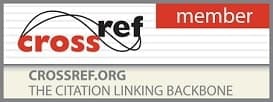Vol. 5, Issue 1, Part A (2023)
Modelling the drug addictions and associated risk factors in California
Benjamin Adejumo
Drug addiction is a chronic medical condition marked by an individual's inability to suppress the need to use drugs despite knowing that doing so will have a severe impact on their health, their family, and society at large. A growing corpus of research demonstrates how the use of illegal drugs begins and persists as a result of interactions between the substance misuse phenomena and drug addiction propensity. The purpose of this study was to evaluate the relationship between socio demographic factors and other risk factors and the propensity for drug addiction. According to the results of the fitted logistic regression, there is a significant correlation between the likelihood of drug addiction in California and social demographic risk factors like sample respondents, family history, alcohol consumption, monthly income, age, and gender as well as other risk factors like tobacco smoking. The goodness of fit test shows that the model fits the data well and may be used to forecast the likelihood of drug addiction in the future. Based on the fact that California residents of all ages particularly adults and genders are a significant factor in the occurrence of drug addiction, the state should enforce rules and consistently raise public knowledge of potential penalties and fines.
Pages: 17-21 | 1626 Views 413 Downloads
















